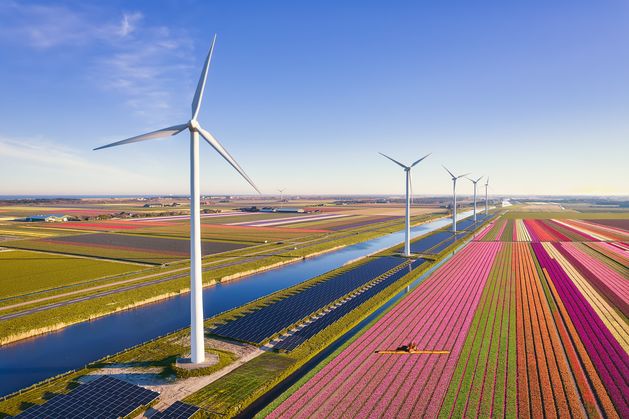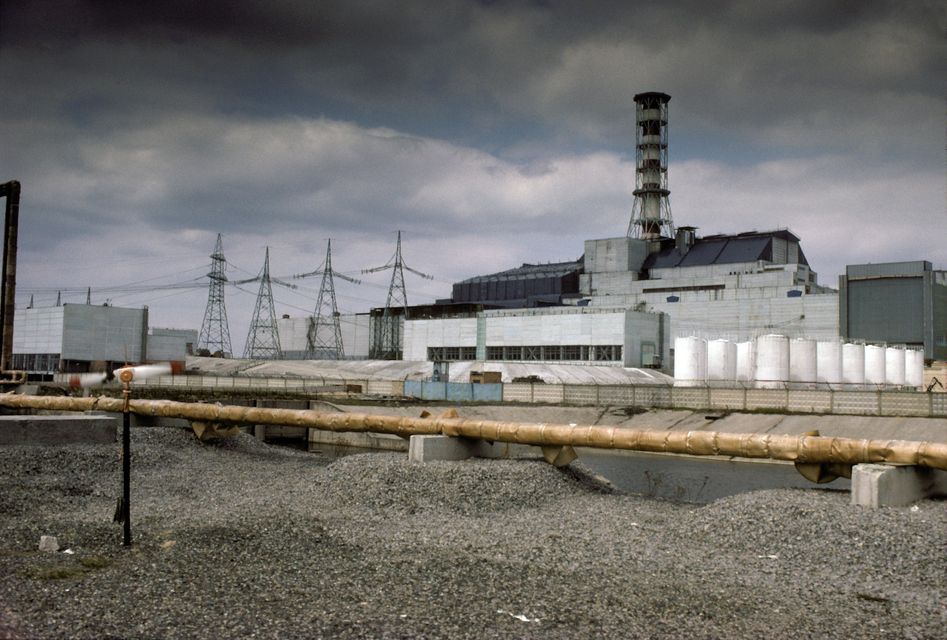Last week, Google and Amazon announced they would back a wave of new newly-built small reactors to power their data centres from 2030. Microsoft is doing something similar.
They feel they’ve no choice. Energy generation isn’t keeping up with the demands of modern usage. Countries from Ireland to the US are dithering about permission for alternative power sources, from wind to solar.
Gas terminals are controversial, while peat, coal and oil are all but obsolete options in the West.
The nuclear plant in ‘The Simpsons’
So nuclear is getting a fresh start. Might Ireland reconsider its attitude toward the whole thing?
Mention the word nuclear in this country and you’ll hear an audible hiss. ‘Nuclear’, to us, means Sellafield, Three Mile Island, Chernobyl and Fukushima. It also means weapons of war, from missiles to submarines.
This near-religious revulsion of ‘nuclear’ even makes into national law – the 1999 Electricity Regulation Act bans us from building any nuclear stations here.
There’s more than a dollop of hypocrisy here. Part of the energy powering your kettle or charger comes from nuclear plants abroad, linked to the Irish grid.
‘Nuclear’, to us, means Sellafield, Three Mile Island, Chernobyl (above, the nuclear reactor in Ukraine) and Fukushima. Photo: Getty
Our horror of nuclear reactors doesn’t actually extend to not using their energy. And the environmental downsides we associate with nuclear look increasingly tolerable compared to fossil fuels.
Indeed, the new wave of tech-backed nuclear reactors favoured by Google and Amazon are quite different to the large, smoking ones you see in the opening credits of The Simpsons or from a train in France. There’s no large, fat funnel, for a start; instead, the “small modular reactors” talked about by Google look more like a couple of industrial buildings.
They’re capable of putting out around a third of the power of a larger nuclear installation, but are quicker to build and – the power companies claim – are also easier to decommission. Because of that, they can be set up much closer to the facilities they’re intended to power, whether that’s data centres, commercial parks or even residential areas.
Our horror of nuclear reactors doesn’t actually extend to not using their energy
They’re still very expensive, though: Amazon is setting aside around $500m (€460m) in contract money to support the plants being set up partially to power its data centres. But money isn’t the main barrier to nuclear for us, is it?
I’ve often wondered whether our objection to nuclear power was even partly related to self-doubt about our own ability to build proper, non-leaky infrastructure.
I’ve heard it said anecdotally more than once that nuclear power plants are fine for the French and Germans, who know how to build things, but that if we tried to do it, it’d melt down causing an environmental disaster and international mortification in equal measure.
But over the last decade or two, Ireland has started to believe that it can build things just like other countries, from light rail systems to better roads to top-end hospitals.
True, we usually take much longer to get things done, partly through appeal after appeal in our planning system.
It’s not just data centres that are set to suck up more of the national grid. Ireland is a growing country
But overall, we’re a more confident lot than we used to be. If building a nuclear facility seemed like an environmentally reasonable move to guarantee energy supply, I think that more Irish now believe we could do it.
In any case, we have to do something. It’s not just data centres that are set to suck up more of the national grid. Ireland is a growing country with a rapidly expanding population. This is a good thing.
But it’s also something we need to plan for. If we’re not willing to allow far more wind and solar power generation, it’s time to look to nuclear.


